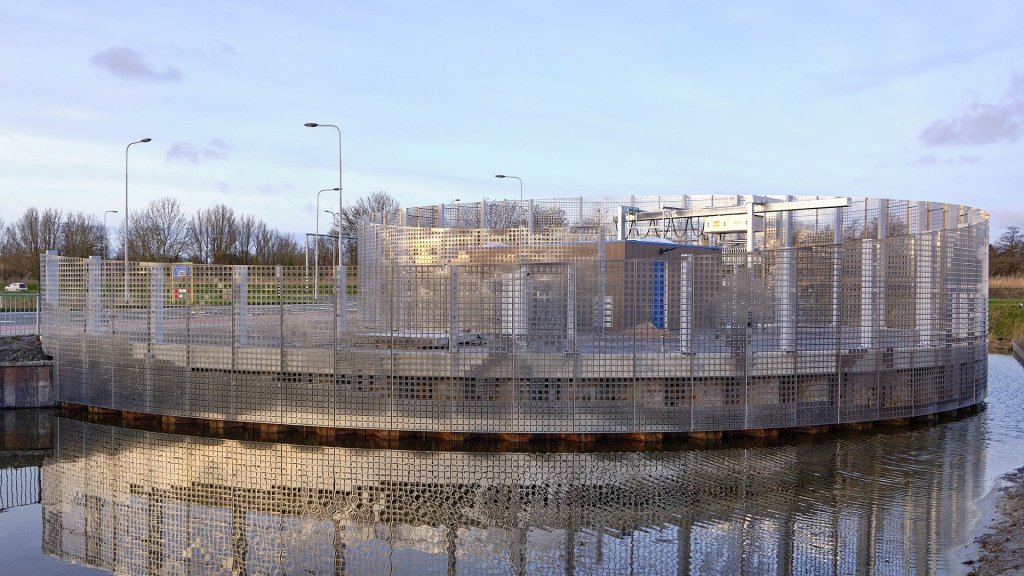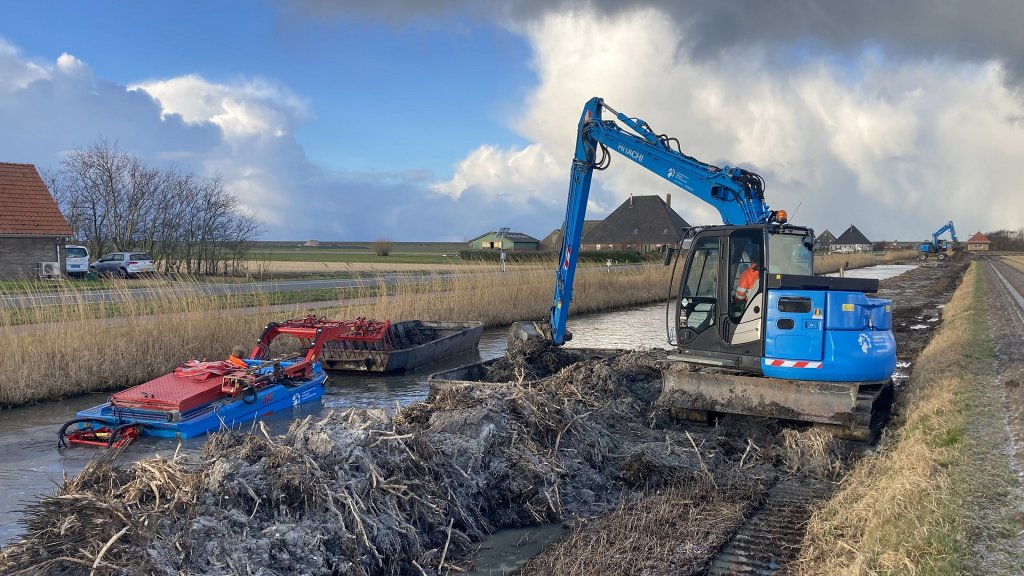HHNK closes drenched 2024 with positive result
In 2024, we opened a new sewage treatment plant using the latest technology, a pumping station essential for the development of Station Quarter Dijk en Waard was completed, eight kilometers of regional dikes were improved, six kilometers of nature-friendly banks were constructed and three fish migration facilities were completed. And all in a very wet year in which the pumping stations were running at full capacity. The annual accounts, with an operating surplus of 2.2%, were unanimously approved by the General Board on May 28.
With hardly any rain having fallen in 2025, it is already almost impossible to imagine how wet 2024 was. The year began with high water in the IJssel and Markermeer lakes - with an active crisis organization already scaled up before Christmas - followed by much more precipitation. In the first six months, only March was drier than normal; in April and May it was already soaking wet again. Emergency pumps had to be installed. Although flooding certainly occurred, it is concluded that the water system could handle the amount of precipitation. Eventually the water level in the ditches returned to target level.
Preparing for the future
Climate change combined with new laws and regulations are creating increasingly complex issues. For example, the tightening of European standards for urban water poses additional technological, organizational and financial challenges. Adding this to the introduction of the Omgevingswet and the need to expand and renovate sewage treatment plants, demands a lot from the organization. In addition, our expertise is called upon by external parties for strategic questions about water-and-soil steering as well as climate adaptation.
Water quality in the spotlight
The Netherlands has committed to high water quality standards, but the 2027 goals are proving difficult to meet. The Water Framework Directive (WFD) was also in the spotlight in Hollands Noorderkwartier: in February, about a hundred farmers offered a pamphlet with nine desired changes regarding so-called nutrients (unwanted nutrients) in the water. Later, the banned substance dinoterb was found in the surface water. This caused a stir and confusion in the press. For the organization, it meant a lot of research. Research by Deltares yielded no clearly identifiable source. Meanwhile, HHNK has not been idle either. Based on a quick scan performed earlier by the University of Utrecht, the General Board decided on an additional WFD impulse program to keep the desired goals within reach.
New pumping station and new treatment plant
The Dijk en Waard municipality is now hard at work on a railroad underpass, but a new pumping station was built first. The watercourse along the railroad had to be diverted for the construction of the underpass. The cooperation between the municipality and HHNK resulted in the new pumping station "De Waardse Dijk" that also makes the Heerhugowaard polder climate-proof. In Oosthuizen, a new sewage treatment plant using Nereda technology was completed in July; an innovative technology for biological wastewater treatment with lower energy consumption.
Reinforcement, review and innovation
Thanks to the Boezemkades Improvement Program, the majority of regional dikes, such as those around polders, now meet the safety standard. Eight kilometers were completed this year. Over the past twelve years, all regional dikes have also been tested for safety and it is clear where reinforcement - in time - will be necessary. New techniques for inspecting dikes are also being researched and developed. In February, HHNK received the Water Innovation Award for 'Detecting cracks in dikes using Artificial Intelligence'. Drone images are analyzed via trained algorithms to support physical assessment by inspectors.
Operating surplus
For 2024, €9.8 million more was budgeted than was ultimately spent. There is no single clear reason for this. Many items were spent slightly less than budgeted. Prices on the energy market have been unstable for some time and in 2024 this was to HHNK's advantage. Not all vacancies were filled and some were not filled. Due to many new employees and internal turnover, the capacity to train colleagues in new positions is too limited. But the vacancies also meant that work remained unfilled and therefore money was not spent. The surplus of 2.2% will be added to the reserves. According to portfolio holder Simon Ruiter, a logical decision: "Because of deficits in previous years, a sensible addition because the future also remains extremely uncertain."
You can find the financial statements on the Budget and Financial Statements page.

